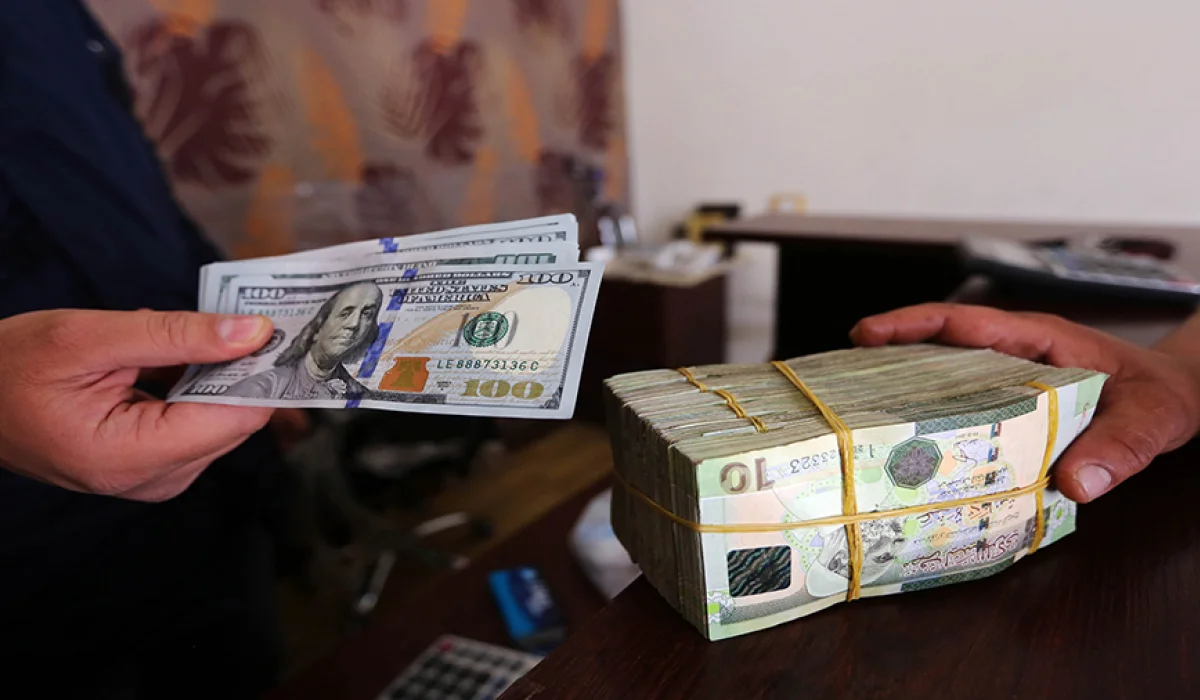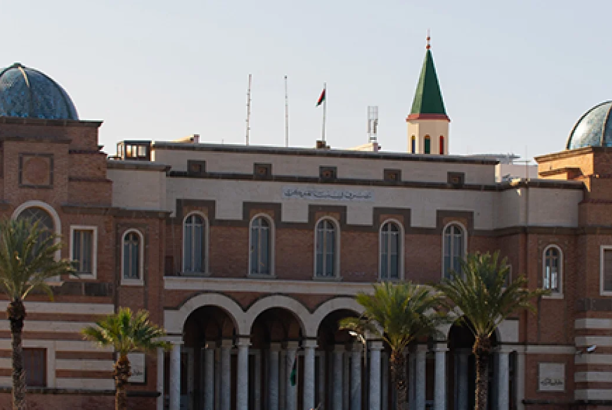
| News
Exclusive: Abu Sriwil Comments on the Activation of Exchange Services in Libya – Motives and Effects on the Parallel Market and Exchange Rate
International expert Yassin Abusriwil spoke exclusively to our source, stating:
In light of the economic challenges Libya faces, the Central Bank of Libya seeks to implement measures aimed at regulating the foreign exchange market and enhancing financial stability. Among these measures is the activation and regulation of exchange services—a decision that carries clear economic objectives but also raises questions about its impact on the parallel market, exchange rate, and the continued inflow of foreign currency in response to growing market demand.
He added:
In this article, we outline our perspective on the reasons behind this measure, analyze its potential effects, and focus on its implications for the Libyan economy.
First: Reasons Behind the Central Bank of Libya’s Decision
According to our analysis, the decision could be driven by the following factors:
1. Reducing Dependence on the Parallel Market
The parallel market remains the primary source of foreign currencies in Libya due to restrictions on purchasing foreign currency through official channels. This fosters speculation and creates a significant disparity between the official exchange rate and the black market rate, leading to sharp economic fluctuations. Activating exchange companies aims to provide official alternatives that reduce reliance on the parallel market.
2. Enhancing Transparency and Financial Oversight
By activating exchange services, the Central Bank of Libya seeks to strengthen oversight of foreign currency flows, which helps combat money laundering and the financing of illegal activities. This step also allows for the collection of accurate data on foreign currency demand, improving the effectiveness of monetary policies and aligning with international regulations.
3. Improving Banking Sector Efficiency
Libyan banks face liquidity issues and difficulties in executing international financial transactions, pushing individuals and businesses toward the parallel market. Activating exchange companies could ease pressure on banks, offering faster and more flexible alternatives for financial transfers and currency purchases.
4. Reducing Exchange Rate Volatility
Having official exchange channels enables the central bank to intervene more effectively in determining the exchange rate, narrowing the gap between the official rate and the parallel market, thus contributing to relative economic stability.
Second: Expected Effects and Outcomes of Activating Exchange Services
1. Organizing the Foreign Exchange Market
This decision is expected to bring greater regulation to the foreign exchange market, ensuring transactions follow clear, monitored procedures, thereby reducing risks of manipulation and speculation.
2. Strengthening Financial Stability
With official exchange services available, individuals and businesses can access foreign currency at more stable rates, limiting financial market disruptions and boosting confidence in the banking sector.
3. Improving the Business and Investment Environment
Making foreign currency available through official channels will facilitate imports and financial transfers, fostering a better business climate and enhancing the private sector’s ability to plan and invest effectively.
Third: Impact on the Parallel Market and Exchange Rate
1. Lower Demand for the Parallel Market
As foreign currency becomes available through official exchange companies, demand for the parallel market is expected to decline, especially if official rates are competitive and meet market needs.
2. Narrowing the Gap Between Official and Parallel Market Rates
With increased foreign currency supply through licensed exchange companies, the disparity between official and black market rates will shrink, reducing speculation and fostering relative exchange rate stability.
3. Possibility of a New Parallel Market Emerging
If foreign currency distribution mechanisms through exchange companies are not fair or sufficient to meet demand, a new parallel market may emerge, with individuals circumventing restrictions, potentially sustaining some speculative activities.
4. Impact on the Libyan Dinar’s Value
If exchange market regulation increases public confidence in official channels, the Libyan dinar may see slight appreciation against foreign currencies. However, if the new system fails to meet market demand, pressure on the exchange rate may persist.
The Continued Flow of Foreign Currency: Challenges and Solutions
Regarding the ongoing availability of foreign currency, Abu Sriwil stated that several key factors influence whether companies can access foreign currency, including:
- Adequate Foreign Reserves: If the Central Bank of Libya cannot meet rising demand, sustained pressure could drive a return to reliance on the parallel market.
- Monetary Policy Flexibility: Strict restrictions on foreign currency transactions may limit individuals’ and businesses’ ability to obtain hard currency through official channels.
- Political and Security Stability: Political unrest can disrupt financial flows and foreign investments, reducing foreign currency availability in the official market.
The Role of Supply and Demand in Sustainability
- If demand for foreign currency exceeds the new system’s capacity to supply it—an expected scenario given the lack of organized trade policies—the gap between supply and demand could weaken the measure’s effectiveness.
- Conversely, if the central bank can regularly provide sufficient foreign currency at competitive rates, market stability may improve, reducing the parallel market’s role. Conducting market studies to determine real demand is crucial.
Proposed Solutions to Ensure Foreign Currency Availability
- Increasing Foreign Reserves Through Oil Revenue Growth: Since oil revenues are Libya’s primary source of foreign currency, ensuring stable production and exports will help maintain a steady foreign exchange supply.
- Broader Banking Reforms: Activating exchange companies should be accompanied by wider banking sector reforms, including easing restrictions on financial transfers and improving the foreign investment environment.
- Enhancing Transparency and Oversight: To ensure success, strict oversight mechanisms must be implemented to prevent manipulation or unlawful exploitation of foreign currency distribution.
Final Thoughts
Abu Sriwil concluded:
Activating exchange services in Libya is a crucial step toward regulating the foreign exchange market and promoting financial stability. However, it is not a standalone solution to the economic issues related to the exchange rate and parallel market. The long-term success of this measure depends on the Central Bank of Libya’s ability to meet rising demand for foreign currency and the flexibility of monetary policies to adapt to economic changes. If implemented within a broader financial and banking reform strategy, this initiative could help curb speculation and contribute to greater economic stability.





